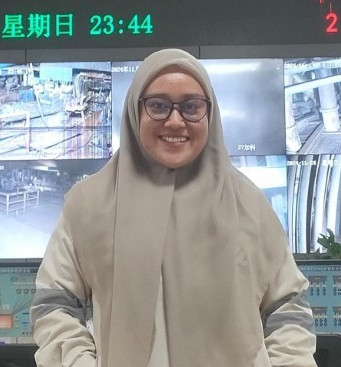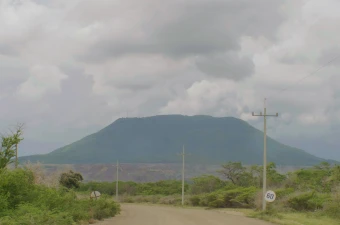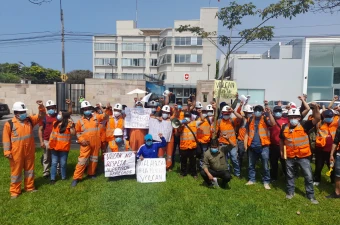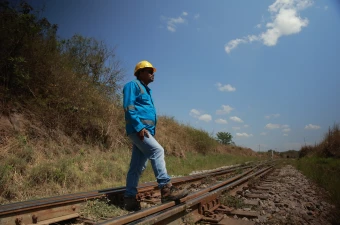Social dialogue in action: unions build a fair working environment
Working conditions in the nickel industry in Indonesia are shocking. Important basic facilities are missing in these industrial areas, such as waste disposal, sewage systems and public infrastructure. Occupational safety is also poor. Not only are conditions unsafe in the factories, but workers have to walk along a life-threatening road day and night to get to their jobs in the nickel smelting plants. It is one of the problems that the local partner union FPE-KSBSI has been fighting for with support from CNV Internationaal, with the first concrete result that some shuttle buses are available to take workers to their workplace.
The employees of PT. Indonesia Ruipu Nickel and Chrome Alloy (IRNC) first had to walk three-and-a-half kilometres twice daily from the residential area to the industrial area, an exhausting and life-threatening route, especially in the dark. Especially for women workers, and specifically pregnant workers, there were significant safety risks present on this route.
There are now 2 buses that can take workers to the factory for the morning and evening shift. This helps them arrive at work a little more rested, which contributes to their well-being and concentration. Although work in nickel smelters remains very tough and risky, this kind of support can contribute to a safer working environment.

Fadliah Liku, FPE union leader at PT. IRNC, IMIP.
"The shuttle bus is crucial to help workers arrive at the workplace safely. When we showed management our daily route to our workplace, they understood the need for the shuttle bus. We also appreciate that it was agreed that female and pregnant workers are given priority when boarding the bus."
Social dialogue ensures improved working conditions
Change did not come naturally. Back in 2023, trade union FPE-KSBSI began advocating for a solution to the long road towards the workplace. In doing so, they also worked with unions at company, sectoral and national levels. During every consultation with employers, the unions always stressed the importance of buses for the welfare of workers.
CNV Internationaal helped FPE-KSBSI go into these negotiations well prepared, by training union leaders on social dialogue and negotiations. This preparation allowed the union to communicate strategically with management and effectively advocate for workers' interests.

The next step towards sustainable change
This step forward in nickel smelting shows how union FPE has learned to successfully use social dialogue during negotiations. This has been shown to be an effective approach. The union has built a good relationship with management, making it possible to discuss and agree on employee issues, which will hopefully lead to solutions to the many other issues workers face.
FPE-KSBSI together with CNV Internationaal will continue to stand up for PT workers. IRNC. They hope there will be shuttle buses that will run door-to-door for women who have to work night shifts. Crime has risen sharply in Morowali, putting women working night shifts at high risk of being harassed on their way to work.
Fadliah Liku, FPE union leader at PT. IRNC, IMIP.
"Currently, there are only two buses available, which means that not all IRNC workers can be transported, but we see this as a positive step towards better transport for all workers. We will continue to advocate for more bus schedules to ensure that all employees can reach the workplace without having to walk 3.5 kilometres every day."
Learn more: The nickel industry in Indonesia
Nickel is one of the most important metals for the energy transition, but unfortunately it is scarce. Indonesia has one of the largest nickel reserves in the world, and in recent years the nickel industry here has grown rapidly. This has led to explosive CO2 emissions, and people live and work in these industrial areas under deplorable conditions.
Read more about the nickel industry in Indonesia on this webpage >
Or watch the video below:
Video
Publication date 01 05 2025


